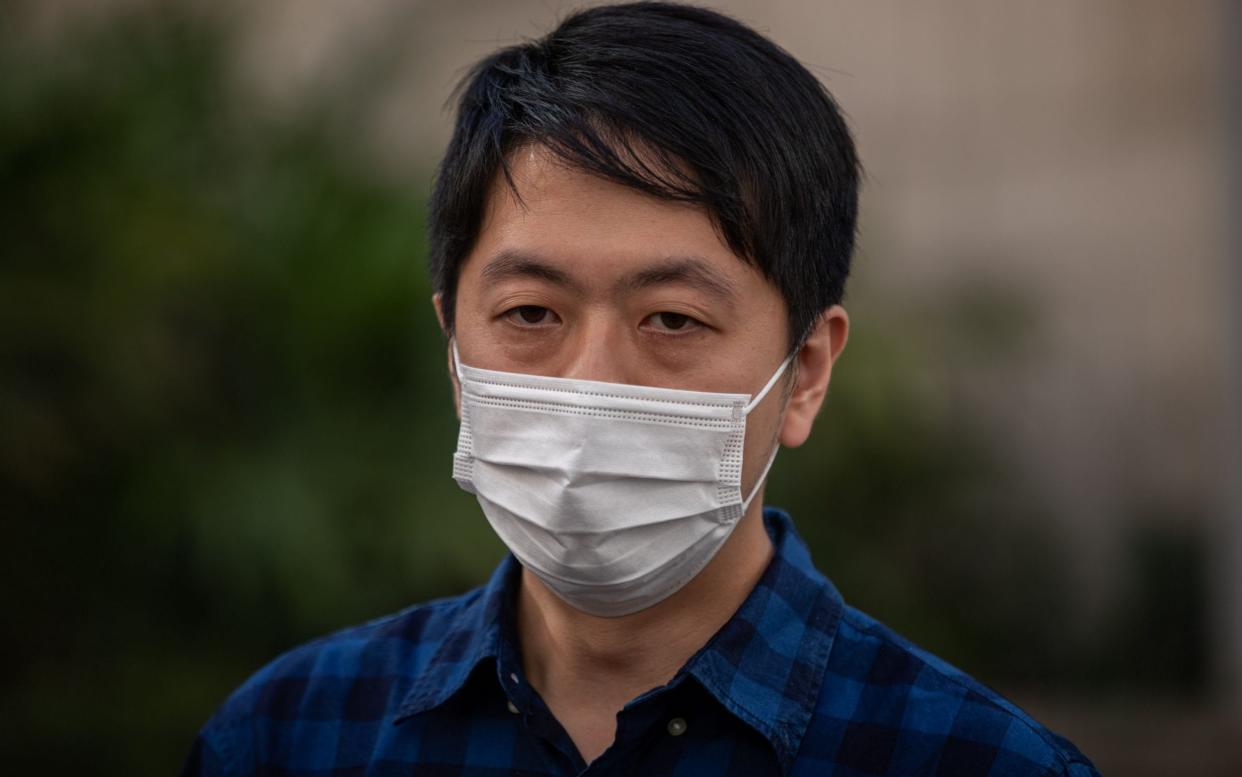Hong Kong facing 'long dark age' of crackdowns, exiled pro-democracy activist warns

Hong Kong is entering a "long dark age" with further crackdowns over the coming months, a leading pro-democracy activist living in political exile in the UK has said.
Ted Hui, a former lawmaker in Hong Kong's parliament, warned that its political plight was far from over.
"More dissidents in exile, more court cases are coming," he told The Telegraph. "The judicial system is being attacked and it has been suggested there will be judicial reform. Hong Kong has lost the streets, we lost the legislature."
Mr Hui was a member of the Democratic Party, winning a seat in 2016. However, all Hong Kong's pro-democracy lawmakers, including Mr Hui, resigned in November after the Hong Kong government disqualified four of their colleagues.
Since Hong Kong's national security law was enacted by Beijing last summer, the city has seen dozens of pro-democracy politicians and political figures, including Jimmy Lai, Joshua Wong and Agnes Chow, charged or imprisoned.
The arrests have had a chilling effect on Hong Kong's pro-democracy movement as protests waned and people became fearful of criticising the Hong Kong government or Beijing.
"People are banned totally from speaking, so I feel a greater responsibility to do that for Hong Kong people," Mr Hui said. "If I can't do what I was doing, that is to speak for Hong Kong, in the legislature, on the streets, with the civil society, if all those routes are shut there might be a need for me to be doing it outside."
Mr Hui has long been one of the movement's most outspoken figures. Last May, he hurled a rotten plant across the parliament chamber in protest at a bill that would criminalise criticism of China's national anthem.
He said he regretted "not throwing enough of them" despite later being arrested for disturbing legislature proceedings. His passport was surrendered to the authorities while he was released on bail facing nine charges, including criminal damage and perverting the course of justice.
He needed special permission to travel – an opportunity granted when Danish politicians invited him to speak in Denmark for a climate change programme last month.
Mr Hui said it was not until he was on the plane to Copenhagen that he began to consider exile from Hong Kong. "For the facts, it was never my plan to seek asylum. I was struggling, really," he said.
Mr Hui announced his self-exile in a Facebook post on December 3 and is now living in Britain. Shortly after he arrived in London, he discovered that his and his family's HSBC Hong Kong bank accounts had been frozen. "That was pretty scary," he said.
HSBC Hong Kong is the largest bank in Hong Kong and is a subsidiary of its parent owner HSBC.
"I would suggest the UK could make a really strong stand against HSBC," said Mr Hui. "HSBC UK can say it's nothing to do with HSBC Hong Kong, but we know they are under the same brand. It's my plan to write to the financial regulators to investigate this incident."
Hong Kong police said they had asked banks to freeze Mr Hui's accounts because they suspected money-laundering. The accounts were later briefly unfrozen, allowing him to transfer funds elsewhere.
HSBC Hong Kong said it would not comment on account issues related to an individual customer.
On Saturday, Mr Hui said on Facebook that HSBC Hong Kong had cancelled his family's credit cards.
Mr Hui said he was now focused on lobbying internationally for Hong Kong, adding: "I've been in touch with more leaders of protests who are in exile in the UK.
"It's my plan to do a lot more writing over Hong Kong [for those] who can't speak at the moment."

